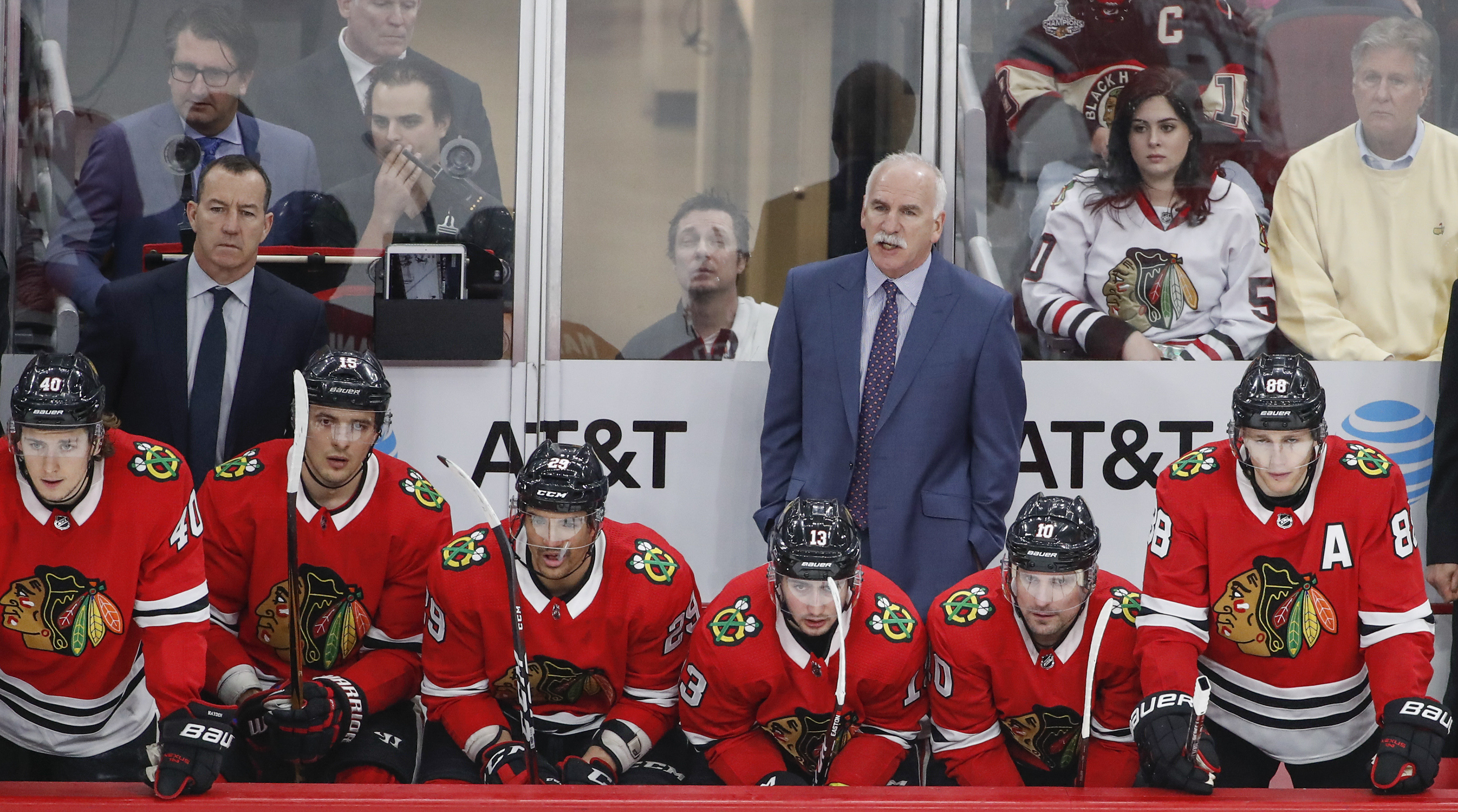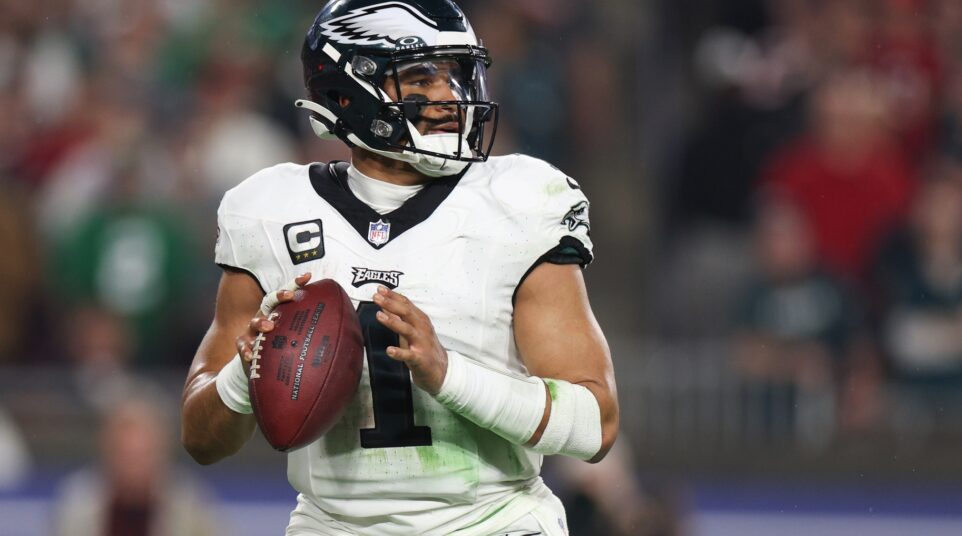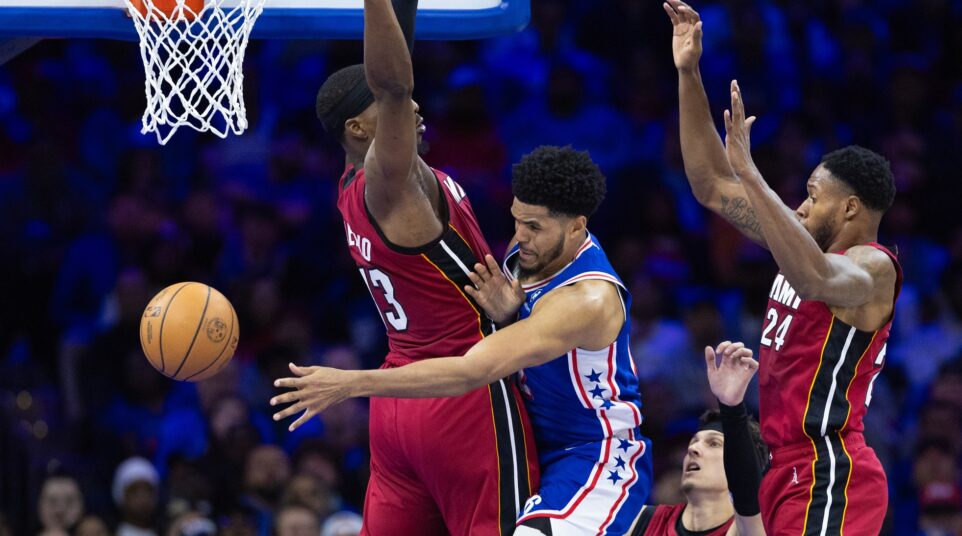
The Flyers Now vs. the Flyers Then, and How it Equates to Joel Quenneville
Russ wrote a post Tuesday about the Joel Quenneville firing and how it relates (or doesn’t really) to the Flyers.
I wanted to expand on what he wrote with an opinion that I have expressed previously on the Snow the Goalie podcast, but haven’t really written in this space… until now.
I won’t sit here and begin to tell you why the Chicago Blackhawks fired Quenneville. There could very well be something behind it that’s not public. But, from my 1,000-foot view, I know there was a cordial-at-best relationship between Quenneville and general manager Stan Bowman. This wasn’t anything new. It went back several years. The two were definitely able to put their differences aside when Chicago was winning three Stanley Cups in six years, but two first-round exits and a missed playoff season altogether in the last three years followed by a .500 start to this season (points percentage-wise) was enough for the GM to win out and can the coach.
Now you might ask, why did I bold that last part of the previous paragraph? It’s because I want you to read it again. Go ahead, I’ll wait…
…
…
If you didn’t know I was talking about Quenneville and the Blackhawks, doesn’t that sound eerily familiar to Dave Hakstol?
Actually, it’s not eerily similar. It’s spot on the same.
In Chicago, Rocky Wirtz, owner of the Blackhawks, who invariably had to sign off on this firing of Quenneville, wasn’t content enough with his three-time Cup-winning coach merely giving mediocre results.
Here, Comcast Spectacor, owner of the Flyers, who would invariably have to sign off on any personnel decision involving an employee, seems to let that mediocrity define them.
This isn’t meant as an indictment of Hakstol. I honestly think the guy has coached his ass off this season just to get to 7-7-1. I don’t type that lightly either. I never gave him high marks for coaching before this season, but I see a difference in Hakstol compared with his first three seasons where he went from feeling his way to growing too comfortable knowing his GM, Ron Hextall, had the patience of a saint for the team’s progress.
No, this is instead targeted at the ownership of the team. It’s an ownership that is clearly driven by the bottom line, not necessarily about results. It’s why mediocrity has reigned supreme for Hextall’s tenure. The team has been just good enough to keep the fans interested, the tickets mostly sold, and the stadium more than full enough to keep the money rolling in.
But that bottom line figure has started to have a little more of a red hue to it. Don’t get me wrong, the Flyers are still in the black, but the numbers at the bottom of the spreadsheet are getting a little bit of a sun burn, and this has precipitated CEO Dave Scott to suddenly make visits to the GM’s box this season.
Finally, they are showing they care – but it’s likely for the wrong reasons as far as fans are concerned.
Yes, hockey, like all professional sports, is a business, and ultimately, business decisions are going to be made, regardless of their popularity.
But, to be successful in sports – from the competition side – it requires more from ownership than just a wallet and maximizing its return on investment. It requires a desire to win over and above the bottom line.
I spoke to an executive with the Flyers several years back who explained to me, in great detail, why the organization at the time didn’t make money unless the team made it into the second round of the playoffs.
It made a lot of sense back then.
In short, the team was spending more money than almost any other team because they were trying to win season after season after season all while keeping the fans as engaged and interested as possible.
And although the Flyers ultimately came up short in that pursuit, an 0-fer that has extended to 43 years now, they were definitely in the championship conversation every year.
I’ve made the argument before that the Flyers were an elite team in the NHL for a long period of time. Some chided me for that – and I get it, it’s hard to characterize a team as elite without a championship for so long.
But between 1974 and 2010 the Flyers went to the Stanley Cup Finals eight times. If you add in the seasons they were bounced in the semifinals, they reached at least the Final Four of their sport 15 times in 35 seasons (2004-05 was locked out entirely).
You’ll be hard pressed to find many other professional sports teams with that kind of sustained success.
And the primary reason that happened was they had an owner who wanted to win more than anything else.
Sure, Ed Snider meddled sometimes a bit too much. There were mistakes that were made along the way that can now posthumously be linked back to him. Bad contracts (Ilya Bryzgalov), trading away young players at the wrong time (Justin Williams, Patrick Sharp – although these were Bob Clarke decisions, they needed Snider’s blessing), firing a coach at the wrong time (Terry Murray, Peter Laviolette) and a total mishandling of the Eric Lindros situation.
But these decisions were mistakes of passion, not a mistake of apathy.
And that’s the most damning thing about the Flyers right now. They are mediocre because that’s what ownership has accepted.
And maybe they are slowly on the way to where they can be competitive again. Hextall is truly giving us an on-ice rendition of The Tortoise and the Hare. But how much longer do you have to wait? Two more seasons? Three? Four?
Is this a five-year plan? Seven? Ten?
Whatever it is, Comcast should have the alarm bells going off about what is happening in Chicago. Good organizations don’t settle. They keep trying to find the next advantage to winning.
And maybe the Blackhawks are on their way to a rebuild, with the window having closed on an aging roster and ownership felt that it was better to head into that period of uncertainty with a coach making a lot less than Quenneville’s $6 million a year. Or maybe they are trying to squeeze more out of the current roster and want to send a message to the players that having the 27th ranked power play and 22nd ranked penalty kill is not good enough. (By similarity, the Flyers are 24th and 29th respectfully).
Whatever the case may be, the Blackhawks, at least for the past decade, have been an organization determined to win and do so at all costs – and it has resulted in an incredible run.
The Flyers? Their payroll in 2003-2004 was $69 million. That, of course, was before there was a salary cap, but was the second-highest in the NHL. Now, 15 years later, it’s $72.5 million. The Flyers now rank 23rd in the league in salary. Hextall did a great job of getting them out of salary cap hell, which was an issue created prior to his arrival, but at the same time, has not attempted to do anything with the room he has created – aside from throwing a little too much money at James van Riemsdyk to bring the long-lost Flyer home.
The reason he’s been able to get away with being so very patient?
Because he doesn’t have an owner, or owners, who care nearly enough as the fans, never mind coming close to the passion for the sport that Snider had. They like the fact that they are spending less money than they can and still are able to put a sometimes entertaining and marginally successful product on the ice.
The Flyers would be wise to send a similar message to their players and their fans like Chicago has done and give a tour of Comcast’s bottomless pockets to Quenneville.
It would be a sign that expediting the concept of winning is a priority. Bringing in a coach who knows how to win and motivate winning players.
That’s not to say Hakstol won’t eventually get there – like I said, he’s done yeoman’s work this season – but an apathetic and frustrated fan base is about ready to give up on the waiting. And even if Hakstol saved his gig with a good road trip out west, everything now changes with Quenneville suddenly becoming a free agent.
I would bet there are teams ahead of the Flyers right now who are thinking long and hard about calling Quenneville or his agent. Hell, I bet a couple called in the time it took you to read this post.
Comcast and the Flyers need to get on that horse, post haste…
Otherwise, a 3-0-1 road trip in November might be the most exciting thing to talk about during the postmortem on this season in April and you’ll be discussing the creation of more off-ice marketing shticks to try and distract fans until the team gets to where it should be already.





